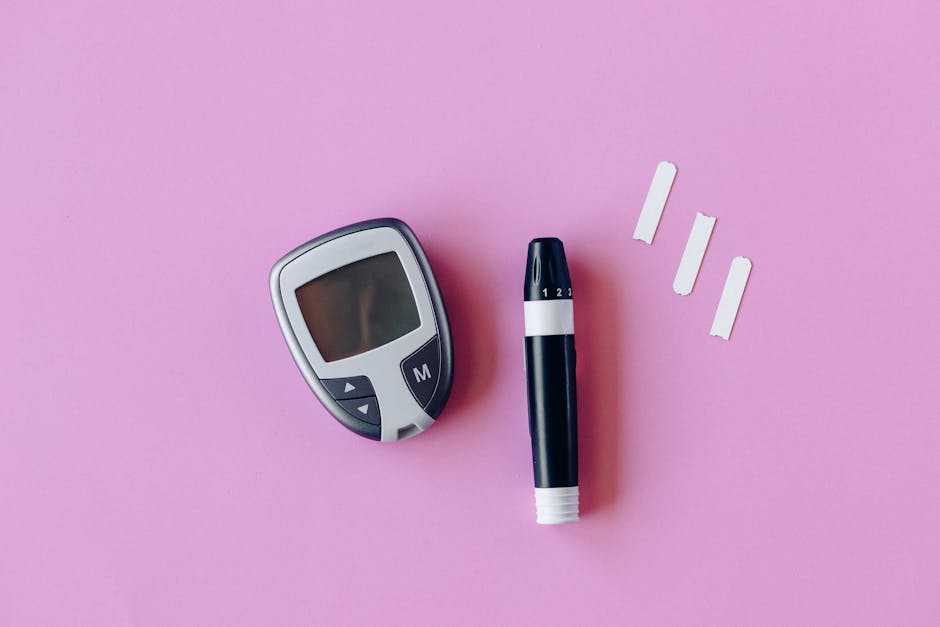In today’s fast-paced world, keeping track of our mental well-being is more crucial than ever. That’s where wearable technology comes into play. As someone who values both technology and mental health, I’ve delved into the fascinating realm of how wearable tech is revolutionizing the way we monitor and manage our mental wellness.
From smartwatches that can detect stress levels to mood-tracking apps synced with our smartphones, the integration of wearable devices in mental health monitoring is reshaping the landscape of self-care. As I explore the impact of these innovative tools, I’ll delve into the benefits they offer in terms of early intervention, personalized insights, and empowering individuals to take charge of their mental health proactively.
Overview of Wearable Technology
Exploring the landscape of wearable technology reveals a fascinating intersection between cutting-edge innovation and mental health monitoring. Wearable devices, such as smartwatches, have revolutionized how individuals track their mental well-being in real-time. These gadgets go beyond merely telling time; they now have the capability to monitor various biometric data points that offer valuable insights into one’s mental state.
Incorporating mood-tracking apps into these wearable devices enhances their functionality, allowing users to capture their emotional fluctuations effortlessly. By analyzing trends in mood patterns and correlating them with other health metrics, individuals can gain a deeper understanding of their mental health and recognize potential triggers or stressors.
The integration of wearable technology into mental health monitoring brings a plethora of benefits. It enables early intervention by alerting users to changes in their mental state promptly. Additionally, the personalized insights derived from continuous monitoring empower individuals to make informed decisions about their well-being proactively.
As the adoption of wearable devices continues to rise, the role of these technologies in mental health monitoring is set to expand further, shaping a future where individuals have unprecedented access to personalized tools for managing their mental health effectively.
Importance of Monitoring Mental Health
In today’s fast-paced world, monitoring mental well-being is crucial. Wearable technology, such as smartwatches and mood-tracking apps, plays a significant role in this process. These devices have evolved to capture biometric data points in real-time, offering valuable insights into one’s mental state. By utilizing mood-tracking apps, individuals can effortlessly track emotional changes, identifying patterns to gain a deeper understanding of their mental health. This integration of wearable technology not only allows for early intervention but also provides personalized insights, empowering users to take proactive steps in managing their mental well-being. The rising popularity of wearable devices hints at a future where personalized tools will be instrumental in the monitoring and management of mental health.
Challenges in Monitoring Mental Health
Monitoring mental health poses several challenges that wearable technology aims to address effectively. Some key obstacles include:
- Data Accuracy: Ensuring that the data collected by wearables accurately reflects the user’s mental state can be challenging.
- Interpretation of Data: Making sense of the vast amount of biometric data collected by these devices and translating it into actionable insights.
- Privacy Concerns: Safeguarding sensitive mental health data and ensuring user privacy and confidentiality.
- User Engagement: Encouraging continued engagement with wearable devices and mood-tracking apps for sustained mental health monitoring.
- Integration with Healthcare: Facilitating the seamless integration of wearable technology data into existing healthcare systems for comprehensive mental health care.
By addressing these challenges, wearable technology can revolutionize the way we monitor and manage mental health, offering personalized solutions and empowering individuals to take control of their well-being.
Wearable Tech Advancements in Mental Health
Expanding on the realm of mental health monitoring, wearable technology has made significant strides in facilitating personalized solutions. Wearable devices, such as smartwatches and mood-tracking apps, have evolved to capture real-time biometric data. These advancements offer invaluable insights into an individual’s mental state, fostering a deeper comprehension of emotional patterns.
Integrating mood-tracking apps into wearable devices enhances the user experience by enabling seamless tracking of emotional fluctuations. This integration allows individuals to identify triggers, observe trends, and attain a comprehensive overview of their mental well-being. Such tools not only promote early detection of potential issues but also equip users with personalized strategies to proactively manage their mental health.
The surge in the popularity of wearables underscores a future where personalized tools play a pivotal role in mental health monitoring and management. Overcoming challenges such as data accuracy, interpretation of biometric information, privacy considerations, user engagement, and integration with healthcare systems, wearable technology is poised to revolutionize mental health monitoring. By surmounting these barriers, wearables offer tailored insights and empower individuals to assume control over their well-being.
Applications of Wearable Tech in Mental Health Monitoring
Exploring the practical applications of wearable technology in mental health monitoring opens up a realm of possibilities for improving well-being. Wearable devices equipped with sensors and tracking capabilities provide a constant stream of data that can offer valuable insights into an individual’s mental state.
Utilizing wearable tech for mental health monitoring allows for the seamless collection of biometric data such as heart rate variability, skin temperature, and physical activity levels. These metrics can be analyzed to detect patterns and changes in a person’s emotional well-being over time. By leveraging this data, individuals can gain a deeper understanding of their mental health status and identify potential triggers that impact their emotional state.
One notable application of wearable technology in mental health monitoring is the early detection of stress and anxiety. By monitoring physiological signals and changes in behavior, wearable devices can alert users to heightened stress levels, prompting them to take proactive measures to manage their well-being. This real-time feedback can empower individuals to make informed decisions and implement coping strategies to mitigate the impact of stress on their mental health.
Furthermore, wearable devices integrated with mood-tracking apps enable users to monitor their emotional fluctuations and identify correlations with external factors such as sleep, exercise, and social interactions. By tracking mood patterns and recognizing trends, individuals can proactively address issues that may affect their mental well-being and make informed lifestyle choices to support their overall mental health.
The integration of wearable technology in mental health monitoring not only provides individuals with personalized insights but also offers healthcare professionals access to valuable data for more effective diagnosis and treatment. By bridging the gap between individuals and healthcare providers, wearable devices contribute to a collaborative approach to mental health management, facilitating early intervention and tailored strategies for improved well-being.
Future Trends in Wearable Tech for Mental Health
Exploring the advancement of wearable technology for mental health unveils promising future trends that are set to revolutionize how we monitor and manage our well-being.
- Enhanced Data Analytics:
Leveraging advanced algorithms and machine learning, wearable devices are poised to deliver even deeper insights by analyzing complex data patterns. This will enable more accurate detection of mental health indicators and personalized recommendations based on individual trends. - Integration of Biometric and Environmental Sensors:
Future wearable tech is moving beyond just monitoring heart rate and activity levels. Integration of biometric sensors with environmental data such as air quality and light exposure will offer a comprehensive view of how external factors impact mental health, fostering a holistic approach to well-being. - AI-Powered Emotional Intelligence:
Artificial intelligence will play a pivotal role in enhancing wearables’ emotional intelligence capabilities. These devices will be equipped to not only track emotions but also offer real-time interventions and coping strategies based on an individual’s emotional state, promoting proactive mental health management. - Gamification for Engagement:
Gamification techniques will be integrated into wearable apps to boost user engagement and motivation. Through interactive challenges, rewards, and social features, individuals will be encouraged to stay consistent with their mental health monitoring, creating a more interactive and enjoyable experience. - Telehealth Integration:
Wearable devices will increasingly connect users with mental health professionals through telehealth services. This integration will enable remote monitoring and intervention, facilitating timely support and personalized care, especially in regions with limited access to mental health resources.
These emerging trends signify a paradigm shift in mental health monitoring, offering individuals proactive tools to understand, track, and manage their well-being more effectively. As wearable technology continues to evolve, it holds immense potential to enhance mental health outcomes and promote a culture of self-care and well-being awareness.


